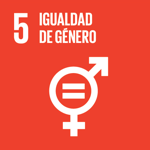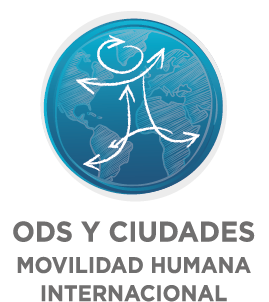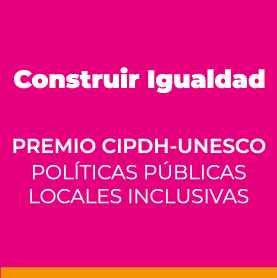
- Region
- Latin America and the Caribbean
- Range of Demographic Size
- 1,000,000 inhabitants or more (metropolis)

5.1 End all forms of discrimination against all women and girls everywhere in the world.
5.2 Eliminate all forms of violence against all women and girls in the public and private spheres, including trafficking and sexual and other types of exploitation.
5.5 Ensure women’s full and effective participation and equal opportunities for leadership at all levels of decision-making in political, economic and public life.
5.6 Ensure universal access to sexual and reproductive health and reproductive rights as agreed in accordance with the Programme of Action of the International Conference on Population and Development and the Beijing Platform for Action and the outcome documents of their review conferences.
I - Afro-descendants: rights and combating racial discrimination
• Inter-American Convention on the Prevention, Punishment, and Eradication of Violence against Women (Convention of Belém do Pará)
Convention on the Rights of the Child (CRC).
Convention on the Elimination of all Forms of Discrimination Against Women (CEDAW).
Declaration on the Elimination of Violence Against Women.
Universal Declaration of Human Rights (UDHR).
Summary
The local public policy “Today’s Girl, Tomorrow’s Woman” is a UNICEF project developed together with the Secretary of Women of Recife, the Embassy of the United States of America (USA) and the non-governmental organization (NGO) Centro das Mulheres do Cabo, whose general objective is to contribute to the fulfillment of SDG 5: “Achieve gender equality and empower all women and girls.”
Within this framework, the project works with children and adolescents in a socially vulnerable situation with the following specific purposes: empower them on their sexual, reproductive, civil and political rights; promote their rights in general and encourage them to become “citizenship multipliers” in their communities. For that purpose, this initiative includes various activities such as the development of workshops, role-playing within the scope of the Secretary of Women and cultural activities.
Finally, it is worth pointing out that this project also takes into account the development of training activities in gender mainstreaming for public officials of the Municipality of Recife.
Implementation Date:
Start: 09 / 1 / 2017
End: End: Currently in force
Social/citizen participation
Awareness and/or information campaigns
Education and training
Institutional strengthening
Building of partnerships, networks, associations and coalitions
International organization
International cooperation
Instrumentos

5.1 End all forms of discrimination against all women and girls everywhere in the world.
5.2 Eliminate all forms of violence against all women and girls in the public and private spheres, including trafficking and sexual and other types of exploitation.
5.5 Ensure women’s full and effective participation and equal opportunities for leadership at all levels of decision-making in political, economic and public life.
5.6 Ensure universal access to sexual and reproductive health and reproductive rights as agreed in accordance with the Programme of Action of the International Conference on Population and Development and the Beijing Platform for Action and the outcome documents of their review conferences.
I - Afro-descendants: rights and combating racial discrimination
• Inter-American Convention on the Prevention, Punishment, and Eradication of Violence against Women (Convention of Belém do Pará)
Convention on the Rights of the Child (CRC).
Convention on the Elimination of all Forms of Discrimination Against Women (CEDAW).
Declaration on the Elimination of Violence Against Women.
Universal Declaration of Human Rights (UDHR).
Location
- Region
- Latin America and the Caribbean
- Range of Demographic Size
- 1,000,000 inhabitants or more (metropolis)



